Annual Conference of Human Rights 2015 – Human Rights in Changing Times
The fifth annual Conference on Human Rights will focus on human rights in changing times, and bring together over 350 experts, diplomats, activists and politicians. The topics under discussion this year include case studies from the European Court of Human Rights, linguistic human rights, as well as the views of various generations of Russians today regarding their society. We will also focus on the human rights situation in various parts of Ukraine and the growing migrant crisis in Europe. All of these topics have taken on new meaning in the changing security environment and it is more important than ever to understand the implications of these challenges.
On International Human Rights Day, celebrated annually on December 10th, the Estonian Institute of Human Rights will once again host the traditional annual Conference on Human Rights in Tallinn, Estonia. The conference focuses on current human rights issues and will take place for the fifth year in a row.
This year the theme of the conference will be human rights in changing times. Global and regional crises create new circumstances and challenges, where human rights are playing an ever-increasing role. The topics of the sessions will focus on important national and international issues and look at how changing times influence our understanding and application of human rights.
The day will start with a survey of Estonia’s membership in the UN Human Rights Council during the last three years. Estonia was elected as a member of the council in 2012 for a term of three years. In the council, the country’s focus was democracy and good governance, freedom of expression (including in cyberspace) and the rights of women, children and indigenous people. The presentation will be delivered by Jüri Seilenthal, Director of the Department of Foreign Policy and Developmental Cooperation at the Ministry of Foreign Affairs, Russian Minorities in The Baltics – Opportunities, Challenges and Threats
Russian Minorities in The Baltics – Opportunities, Challenges and Threats
A fresh study called “Awareness of Human Rights and Security” will be presented, which was conducted in Estonia and maps the general awareness of linguistic human rights and the behaviour of the relevant stakeholders, followed by a discussion on integration, segregation and security issues related to the Russians in Estonia and the Baltics in general.
The representative nationwide study, conducted in Estonia by the Institute of Human Rights and market research firm Turu-uuringute AS in 2014-2015, mapped general awareness of linguistic human rights, as well as the factors that impact it – the behaviour of target groups with different native languages, places of residence and ages. The study focuses on standards in the third generation of human rights, above all issues that cause divisions, segregation and ethnic conflict in Estonian society.
The subsequent panel, which will consist of three or four international experts, will discuss and search for answers to the following questions: What are the prominent features of the new generation of ethnic Russians in Estonia and other Baltic countries and do they differ from their parents? Does the Russian community in Estonia and other Baltic countries present a security threat to mainstream society and the political system of the country? What is the reason for the ethnic Russians in Estonia and other Baltic countries not to use the official language in everyday interactions even if they are proficient in the language?
Russia through the different generations of thoughts
The second panel examines how Russia different generations understand power discourse and intelligence role in the society, through the eyes of the different generation of the Russian movement. Russia is seeing the emergence of a new generation of activists and politicians, who will start to play an ever-increasing role in how the country’s society will be shaped.
The aim is to compare the differences between today’s Russia and Russia in the 1990s. Where is Russian society heading and is there room for democracy? What are the chances of the opposition movement, influencing how the country is governed? We will try to find answers to these and other questions.
The European Migrant Crisis: discussion of the Ministers of Foreign Affairs
Looking at important topics in Europe, the migrant crisis has become one of the most vital and multifaceted issues facing the continent. The growing numbers of migrants and asylum seekers fleeing turmoil in Africa and the Middle East pose complex and historic challenges for European policymakers. Over 300,000 migrants had reached the geographical front-line countries Italy and Greece by September this year, and more than 2,500 migrants have drowned in the Mediterranean while attempting the perilous journey.
In the panel ministers of foreign affairs from different countries in Europe discuss how to better understand the nature of the crisis, how to solve it and which steps should be taken to find the appropriate solutions. Shaping the European Union’s collective response is as necessary as ever.
The Role and Influence of The ECHR in Todays’ Europe
The annual Conference of Human Rights in 2015 will extensively focus on the European Court of Human Rights overseeing the implementation of the European Convention on Human Rights in the 47 states that are members of the Council of Europe. We will look at recent important cases and try to understand what is role the court plays in today’s international system. In general, the public lacks knowledge about the competences and jurisdiction of the court. Among other issues, we will look at how recent important cases will influence society and policymaking in the future and whether the current influx of migration will affect how we view the implementation of human rights.
Ukraine and Human Rights: The Current Situation in the Occupied and Annexed Areas
The conflict in Ukraine is far from resolved and warrants special attention. Therefore, there will be a panel on the current human rights situation in Ukraine addressing the important question of who is responsible for enforcing human rights in a situation where no clear structures of accountability are in place.
Crimea has been annexed by Russia. And southeast Ukraine is partially occupied, where Russian military troops are cooperating with the local separatists. The Ukrainian military must also ensure security and human rights in eastern Ukraine, which is a complicated assignment in an occupied territory and over a million people have escaped from the combat area. The Crimean Tatars are being discriminated against based on their ethnicity. All this has occurred in a very short period of time and came as a surprise to the democratic community.
In addition to political will, dealing seriously with the problems in Ukraine requires competent orientation in global politics and the rapidly changing lines of political power. Wishful thinking about rapid solutions must be avoided, and it must be understood that only a well-reasoned strategy can be successful. This includes the readiness to flexibly employ all the options provided by political planning, as well as the utilisation of integrated value-based approaches that are based on the rule law. Special emphasis should be placed on the role of the informational dimension and strategic communication. The Ukraine panel at the conference is one of the first attempts to formulate a systematic approach to the aforementioned set of problems, which, in turn, could provide paths for future solutions.
The conference brings together over 350 activists, diplomats, politicians, analysts and experts from Estonia and around the world, to tackle the important human rights issues of the day and it has become an annual event in Tallinn.
The speakers who have participated in our conference in the past include Madeleine K. Albright, Vagn Joensen, Cuno Jakob Tarfusser, Richard Barrett, Quirine Eijkman, Mustafa Qadri, Kalev H. Leetaru, Artjom Troitski, Stephen J. Rapp, Gentian Zyberi, Riina Kionka, Dunja Mijatovic, Thomas Zerdick, Malavika Jayaram, David Mothander , Douglas Davidson, Anja Mihr, Christopher McCrudden, Mustafa Džemilev, Marriët Schuurman, Galina Timtšenko, Dalee Sambo Doroug, Maria Makejeva, Lauri Mälksoo, Dmitri Muratov and others.
The patron of the conference is Toomas Hendrik Ilves, the President of Estonia.
By invitation only.
The organiser reserves the right to make changes in the schedule and the presenters.
More information: aet.kukk@eihr.ee
Warning: count(): Parameter must be an array or an object that implements Countable in /data01/virt56467/domeenid/www.humanrightsestonia.ee/aastakonverents/wp/wp-content/themes/eihr-konv/page-program.php on line 36
-
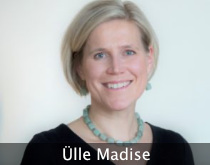 2019Parallel World Values and InterestsA clean environment and future of the globe, the possibility to preserve your privacy and option to disengage, which is necessary for the human psyche, are practical topics that apply to everyone.
2019Parallel World Values and InterestsA clean environment and future of the globe, the possibility to preserve your privacy and option to disengage, which is necessary for the human psyche, are practical topics that apply to everyone. -
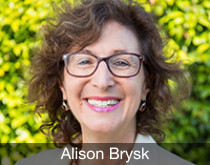 2018Conflicts of ValuesIn 2018, the panels discussed the topic of small countries as equal partners, whether human rights have a future, how much algorithms affect human rights and whether Russia has a future.
2018Conflicts of ValuesIn 2018, the panels discussed the topic of small countries as equal partners, whether human rights have a future, how much algorithms affect human rights and whether Russia has a future. -
 2017Are Human Rights in Freefall?The conference will address a number of today’s most important topics – terrorism, technological development, security, small states in a globalising world, culture and international cooperation – through a human rights perspective.
2017Are Human Rights in Freefall?The conference will address a number of today’s most important topics – terrorism, technological development, security, small states in a globalising world, culture and international cooperation – through a human rights perspective. -
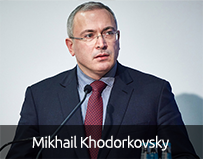 2016Black and White Values in a Polarizing WorldThe topics under discussion this year include a survey of public opinion on human rights among the Estonian citizens and foreigners living in Estonia, questions related to collective human rights and propaganda that have changed people’s understanding of basic rights.
2016Black and White Values in a Polarizing WorldThe topics under discussion this year include a survey of public opinion on human rights among the Estonian citizens and foreigners living in Estonia, questions related to collective human rights and propaganda that have changed people’s understanding of basic rights. -
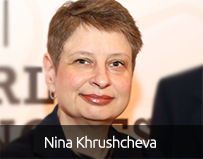 2015Human Rights in Changing TimesThe topics under discussion this year include case studies from the European Court of Human Rights, linguistic human rights, as well as the views of various generations of Russians today regarding their society.
2015Human Rights in Changing TimesThe topics under discussion this year include case studies from the European Court of Human Rights, linguistic human rights, as well as the views of various generations of Russians today regarding their society. -
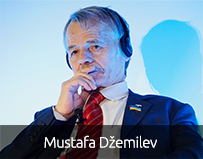 2014Dignity in the context of human rightsThis year the conference agenda included three keynotes and a panel discussion following each one: 1) guarantees under international law; 2) rights of native peoples; guarantees under international law; 3) the situation and future in Russia and Ukraine and human rights.
2014Dignity in the context of human rightsThis year the conference agenda included three keynotes and a panel discussion following each one: 1) guarantees under international law; 2) rights of native peoples; guarantees under international law; 3) the situation and future in Russia and Ukraine and human rights. -
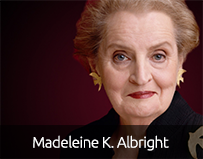 2013Human Rights and the Freedom to AssociationThis year’s annual conference, titled “Human Rights and the Freedom of Association” will analyse the global developments in human rights that have taken place in 2013.
2013Human Rights and the Freedom to AssociationThis year’s annual conference, titled “Human Rights and the Freedom of Association” will analyse the global developments in human rights that have taken place in 2013. -
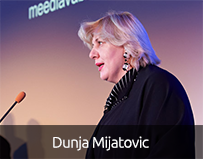 2012New Challenges of Human RightsOur conference examined human rights where the internet and the concept of security have altered dramatically our 20th century understanding of the core issues of human rights.
2012New Challenges of Human RightsOur conference examined human rights where the internet and the concept of security have altered dramatically our 20th century understanding of the core issues of human rights. -
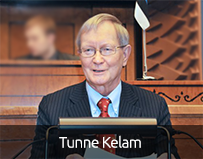 2011Dedicated to the 20th anniversary of restoration of independence of Estonia
2011Dedicated to the 20th anniversary of restoration of independence of Estonia

